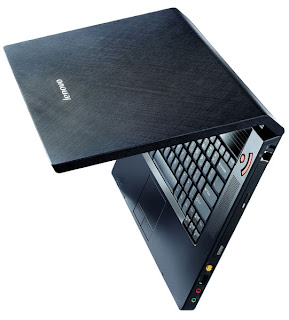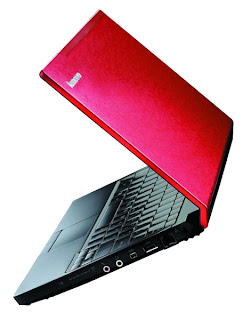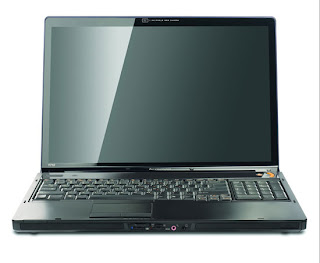eBay through Paypal has acquired fraud detection provider Fraud Sciences Ltd for $169 million.
Israel and Palo Alto based Fraud Sciences offers automated anti-fraud systems including SpotLight VFX and SpotLight T2T, merchant solutions the provide transaction verification with fraud prevention. In an October 2007 profile, Israelplug said that Fraud Sciences products “help online retailers verify the identity of buyers and accept orders that they would have seen as suspicious in the past - thus enabling them to increase their sales.”
eBay said the acquisition will assist them in significantly improving trust and safety across its sites in 2008. Fraud Sciences’ risk tools will be integrated with PayPal’s fraud management system.
Personnel from Fraud Sciences, including Yossi Barak, Fraud Sciences’ COO, and founders Shvat Shaked and Saar Wilf, will join PayPal’s technology and fraud management teams.
This acquisition is expected to be completed within 30 days.
source:Techcrunch
Thursday, January 31, 2008
Wednesday, January 30, 2008
Three low-cost Linux PCs
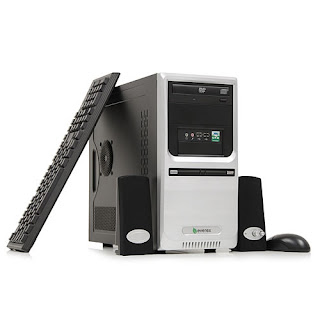
Wal-Mart sells this Everex gPC for $198. It's bundled with speakers, a mouse, and a keyboard, and it comes with 24-hour tech support. The operating system is called gOS, a version of Ubuntu 7.10. Despite the fact that many mainstream consumers have likely never even heard of Ubuntu, Wal-Mart is having trouble keeping the gPC in stock.
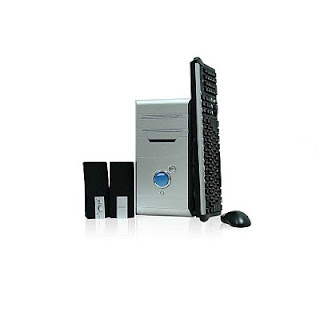
Mirus and Linspire collaborated on the Mirus Linux PC, which is now for sale at Sears.com. Its retail price is $299, but an included $100 rebate brings it to $199. It comes preloaded with Freespire 2.0, an Ubuntu-based Linux distribution.
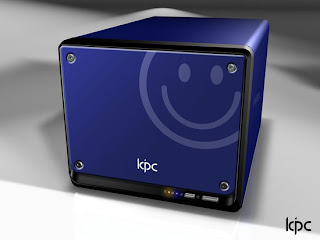
At the Consumer Electronics Show earlier this month, Shuttle introduced its KPC (shown here). It'll include an Intel Celeron processor, a 945GC chipset, 512MB of memory, and either a 60GB or 80GB hard drive. What it won't have: an optical drive or a PCI Express slot. It comes in red, blue, white, and black, each with a different icon stamped on the front. Shuttle also says there will also be a $99 bare-bones version of the KPC. That version will have the option of upgrading to a Core 2 Duo processor and 1GB of memory.
source:news.com
Monday, January 21, 2008
Robots Learn To Lie
Gizmodo reports that robots that have the ability to learn and can communicate information to their peers have learned to lie. "Three colonies of bots in the 50th generation learned to signal to other robots in the group when then found food or poison. But the fourth colony included lying cheats that signaled food when they found poison and then calmly rolled over to the real food while other robots went to their battery-death."
Read more
Technorati Tags: robot, lie
Read more
Technorati Tags: robot, lie
Thursday, January 10, 2008
Google and Facebook Join DataPortability.org
The group is working on a variety of projects to foster an era in which users can take their data from the websites they use to reuse elsewhere...
Good bye customer lock-in, hello to new privacy challenges.
If things go right, today could be a very important day in the history of the internet. The non-participation of Google and Facebook, two companies that hold more user data and do more with it than almost any other consumer service on the market, was the biggest stumbling block to the viability of the project. These are two of the most important companies in recent history — what's being decided now is whether they will be walled-garden, data-horders or truly open platforms tied into a larger ecosystem of innovation with respect for user rights and sensible policies about data.
Read More at Slashdot.
Good bye customer lock-in, hello to new privacy challenges.
If things go right, today could be a very important day in the history of the internet. The non-participation of Google and Facebook, two companies that hold more user data and do more with it than almost any other consumer service on the market, was the biggest stumbling block to the viability of the project. These are two of the most important companies in recent history — what's being decided now is whether they will be walled-garden, data-horders or truly open platforms tied into a larger ecosystem of innovation with respect for user rights and sensible policies about data.
Read More at Slashdot.
Monday, January 7, 2008
Panasonic Lumix DMC-FZ18

Barely half a year after the introduction of the DMC-FZ8, Panasonic added another model to its popular range of compact 'super zoom' Lumix cameras in the shape of the FZ18. Although obviously based on the FZ8 (they are externally almost identical), the FZ18 doesn't replace it; it's a sort of 'big brother' with a bigger zoom, more pixels and a smattering of new features.
The biggest news is the optically stabilized lens, which has 'grown' at both ends and now sports a whopping 18x (28-504mm equiv.) zoom, putting the FZ18 into direct competition with Olympus' SP-550UZ (now updated to the SP-560UZ) and Fujifilm's recently announced FinePix S8000fd.
Almost inevitably the FZ18 squeezes even more pixels onto its 1/2.5-inch sensor, although the increase has been fairly moderate from 7.3 to 8.3 megapixels. Other new features include a dedicated AF/AE button, Face Detection and a new Intelligent Auto mode which integrates Image Stabilization, Intelligent ISO, Face Detection and Scene Detection into a 'Super' Auto Mode.
Despite the usual noise issues you would expect from a tiny sensor/big zoom camera (and our dislike of Panasonic's approach to noise reduction), overall we were pretty impressed with the FZ8 when we reviewed it a few months ago. This was to a large degree due to the superb LEICA lens. So let's find out how Panasonic have tackled the noise challenge - and if the new lens, with it's much more ambitious zoom range, can match its predecessor, starting with a look at what's changed:
Major differences to DMC-FZ8
- 18x optical zoom (28-504mm equiv.) - FZ8 has 12x (36-432mm) zoom
- Smaller maximum aperture at long end of zoom (F4.2 vs F3.1)
- 8.3 megapixel sensor (vs 7.2 megapixel)
- Face Detection
- Intelligent Auto mode
- Manually selectable ISO 1600
- ISO 6400 High Sensitivity mode
- AF/AE lock button and dedicated AF/MF button
- 1cm macro (was 5cm)
- Custom mode and extra scene modes (plus 'advanced scene modes')
- Five level Noise reduction (was three level)
- Slower continuous shooting (burst)
- Heavier and slightly larger
| Street Price | • US: $360 • UK: £270 |
|---|---|
| Body Material | Metal and plastic |
| Sensor | 1/2.5" Type CCD • 8.3 million pixels total • 8.1 million effective pixels |
| Image sizes | • 3264 x 2448 • 2560 x 1920 • 2048 x 1536 • 1600 x 1200 • 1280 x 960 • 640 x 480 • 3264 x 2176 (3:2) • 2560 x 1712 (3:2) • 2048 x 1360 (3:2) • 3264 x 1840 (16:9) • 2560 x 1440 (16:9) • 1920 x 1080 (16:9) |
| Movie clips | • 640 x 480 @ 30 / 10fps • 320 x 240 @ 30 / 10fps • 848 x 480 @ 30 / 10fps (16:9) |
| File formats | • JPEG Exif v2.2 • DPOF • QuickTime Motion JPEG |
| Lens | • 18x optical zoom • 28 - 504 mm (35 mm equiv) • LEICA DC VARIO-ELMARIT • F2.8 - F4.2 |
| Image stabilization | MEGA O.I.S. (Mode1 / Mode2) |
| Conversion lenses | Yes |
| Digital zoom | up to 4x |
| Focus | AF-Macro On/Off, AF/MF Switchable, Manual Focus(Joystick), One Shot AF, Continuous AF On/Off |
| AF area modes | Face / 1-point / 1-point high speed / 3-point high speed / Multi-point / Spot |
| AF assist lamp | Yes |
| Focus distance | • Normal: 30 cm-infinity (wide) 200 cm - infinity (tele) • Macro: 1 cm-infinity (wide) 200 cm - infinity (tele 6-11x) • Tele Macro (at 12-18x) : 100cm - infinity |
| Metering | • Intelligent Multiple • Center-weighted • Spot |
| ISO sensitivity | • Auto • ISO 100 • ISO 200 • ISO 400 • ISO 800 • ISO 1250 • ISO 1600 • High Sensitivity mode Auto (ISO 1600 - 6400) |
| Exposure compensation | +/- 2EV in 1/3EV steps |
| Exposure bracketing | +/- 1/3 EV -1EV step, 3 frames |
| Shutter speed | • Program AE: 1-1/2000 sec • Aperture Priority AE / Shutter Priority AE: 8-1/2000 sec • Manual: 60-1/2000sec. • Starry Sky Mode: 15, 30, 60sec |
| Aperture | F2.8 - 8 (wide) F4.8 - 8 (tele) |
| Modes | • Intelligent AUTO • Program AE • Aperture Priority AE • Shutter Priority AE • Manual • Custom • Portrait mode • Scenery mode • Sports mode • Night portrait mode • Scene • Motion picture • Playback |
| Scene modes | • Food • Party • Candle Light • Sunset • High Sensitivity • Baby1 • Baby2 • Pet • Panning • Starry Sky • Fireworks • Beach • Snow • Aerial photo |
| Advanced scene mode | • Portrait mode : Normal, Soft Skin, Outdoor, Indoor, Creative • Scenery mode : Normal, Nature, Architecture, Creative • Sports mode : Normal, Outdoor, Indoor, Creative • Night Portrait : Night Portrait, Night Scenery, Illuminations, Creative |
| White balance | • Auto • Daylight • Cloudy • Shade • Halogen • Flash • White Set 1/2 |
| White balance fine tune | 2-axis adjustable, ±9steps each, Blue/Amber and Magenta/Green bias |
| Self timer | 2 or 10sec, 10sec / 3 images |
| Continuous shooting | Full-Resolution: 3 frames/sec or 2 frames/sec max. 7 images (Standard mode), Max. 5 images (Fine Mode) |
| Image parameters | • Contrast • Sharpness • Saturation • Noise Reduction • 5 levels (-2 to +2) |
| Flash | • Auto • Auto / Red-eye reduction • Forced On • Forced On / Red-eye Reduction • Slow Sync / Red-eye reduction • Forced Off • Flash output adjustment 1/3EV step, +/-2 EV • Range: 0.3 - 6.0 m (wide) 1.0 - 4.0 m (tele) |
| Viewfinder | 0.44" Color EVF (188K Pixels), Field of View : approx. 100% |
| LCD monitor | • 2.5-inch Polycrystalline TFT • 207,000 pixels • Auto Power LCD mode, Power LCD mode, High angle mode |
| Connectivity | • DC in • AV out • USB |
| Print compliance | PictBridge |
| Storage | • SD / SDHC / MMC • 27 MB built-in memory |
| Power | • Li-ion battery pack • Optional AC adapter |
| Weight (no batt) | 360 g (12.7 oz) |
| Dimensions | 117.6 x 75.3 x 88.2 mm (4.6 x 3.0 x 3.5 in) |
| source:dpreview.com | |
Saturday, January 5, 2008
Lenovo's IdeaPad notebooks
Lenovo is branching out into the consumer retail PC market, showing a flair for design with its new line of IdeaPad notebooks--just in time for next week's Consumer Electronics Show in Las Vegas.
The first model, available beginning in January, is the IdeaPad Y510, a 15.4-inch wide-screen notebook. It comes in black, with a linenlike textured lid. The screen lacks a bezel, giving it a wider area for viewing, and above the keyboard is a touch pad that has different multimedia controls, depending on which application is being used. Other features include an integrated camera with facial-recognition software, Dolby sound with four speakers and a subwoofer, and an Intel Core 2 Duo processor.
The IdeaPad U110, the 11-inch wide-screen version of the notebook, comes in metallic red, weighs 2.3 pounds, and is 0.7-inch thick. The notebook comes with an additional battery and a 160GB hard drive or an optional solid state drive that will come in either 64GB or 80GB, which will be decided closer to the model's debut in late March.
Lenovo's consumer-friendly line also has a 17-inch model, called the Y710. It's more entertainment-oriented, with gaming controls and a slider control so gamers can overclock the PC. There's also an embedded secondary display near the keypad that can display information like CPU usage and music equalization. It comes with an optional Blu-ray Disc drive. The Y710 will be available later in January.
Opera and Firefox Web Browsers Multiple Security Vulnerabilities
Opera Security Vulnerabilities:
Opera Web Browser is prone to multiple security vulnerabilities, including remote code-execution, information-disclosure, and cross-domain scripting issues.
Attackers can exploit these issues to execute remote code and obtain sensitive information in the context of the affected application. Attackers may be able to exploit some of the issues to carry out cross-domain scripting attacks.These issues affect versions prior to Opera 9.25.
Mozilla Firefox Security Vulnerabilities:
1. Mozilla Firefox Jar URI Cross-Site Scripting Vulnerability :
Mozilla Firefox is prone to a cross-site scripting vulnerability because the application fails to sufficiently sanitize user-supplied input.
An attacker can exploit this issue to steal cookie-based authentication credentials and other sensitive data that may aid in further attacks.
2. Mozilla Firefox and SeaMonkey Windows.Location Property HTTP Referer Header Spoofing Weakness :
Mozilla Firefox and SeaMonkey are prone to a weakness that allows an attacker to spoof HTTP Referer headers. This issue stems from a race condition in the affected application. The weakness arises because of a small timing difference when using a modal 'alert()' dialog, which allows users to generate fake HTTP Referer headers.
An attacker can exploit this issue to spoof HTTP referer headers. This may cause other security mechanisms that rely on this data to fail or to return misleading information.This issue affects versions prior to Mozilla FireFox 2.0.0.10 and Mozilla SeaMonkey 1.1.7.
3. Mozilla Firefox Multiple Remote Unspecified Memory Corruption Vulnerabilities :
The Mozilla Foundation has released a security advisory disclosing three unspecified memory-corruption vulnerabilities.
Successfully exploiting these issues may allow attackers to execute code, facilitating the compromise of affected computers. Failed exploit attempts will likely crash the application.Versions prior to Mozilla Firefox 2.0.0.10 and Mozilla SeaMonkey 1.1.7 are vulnerable to these issues.
source:windows-center.blogspot.com
Opera Web Browser is prone to multiple security vulnerabilities, including remote code-execution, information-disclosure, and cross-domain scripting issues.
Attackers can exploit these issues to execute remote code and obtain sensitive information in the context of the affected application. Attackers may be able to exploit some of the issues to carry out cross-domain scripting attacks.These issues affect versions prior to Opera 9.25.
Mozilla Firefox Security Vulnerabilities:
1. Mozilla Firefox Jar URI Cross-Site Scripting Vulnerability :
Mozilla Firefox is prone to a cross-site scripting vulnerability because the application fails to sufficiently sanitize user-supplied input.
An attacker can exploit this issue to steal cookie-based authentication credentials and other sensitive data that may aid in further attacks.
2. Mozilla Firefox and SeaMonkey Windows.Location Property HTTP Referer Header Spoofing Weakness :
Mozilla Firefox and SeaMonkey are prone to a weakness that allows an attacker to spoof HTTP Referer headers. This issue stems from a race condition in the affected application. The weakness arises because of a small timing difference when using a modal 'alert()' dialog, which allows users to generate fake HTTP Referer headers.
An attacker can exploit this issue to spoof HTTP referer headers. This may cause other security mechanisms that rely on this data to fail or to return misleading information.This issue affects versions prior to Mozilla FireFox 2.0.0.10 and Mozilla SeaMonkey 1.1.7.
3. Mozilla Firefox Multiple Remote Unspecified Memory Corruption Vulnerabilities :
The Mozilla Foundation has released a security advisory disclosing three unspecified memory-corruption vulnerabilities.
Successfully exploiting these issues may allow attackers to execute code, facilitating the compromise of affected computers. Failed exploit attempts will likely crash the application.Versions prior to Mozilla Firefox 2.0.0.10 and Mozilla SeaMonkey 1.1.7 are vulnerable to these issues.
source:windows-center.blogspot.com
Subscribe to:
Posts (Atom)
